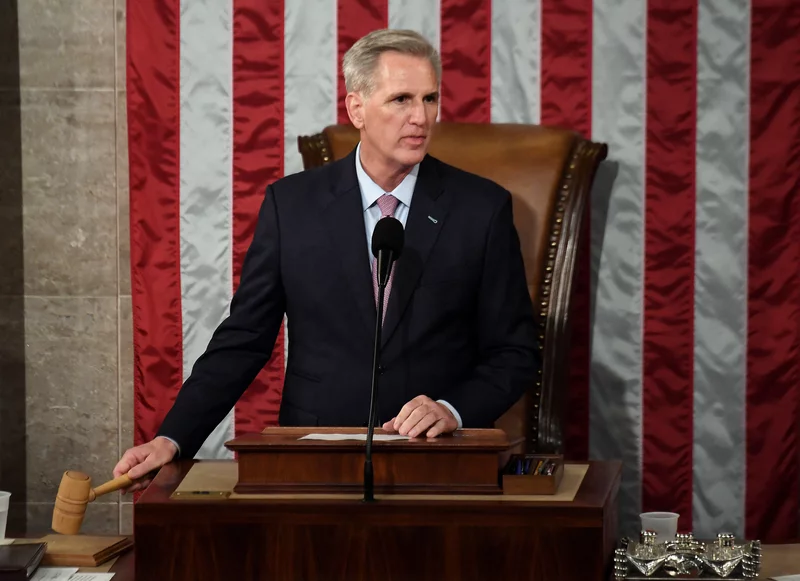According to a recent report, many Republican lawmakers are hesitant to support McCarthy as the new Speaker of the House due to his perceived unreliability as a conservative.
In addition, McCarthy’s lack of commitment to impeaching President Biden and Vice President Harris has caused Republicans to hesitate in supporting him.
Kevin McCarthy was elected as Speaker of the House with the smallest majority for a Speaker since Democrat John Nance Garner in 1931.
Additionally, McCarthy’s net favorability rating of -19 points among all adults is significantly worse than that of either Newt Gingrich (-9 points) or Nancy Pelosi (+18 points) when they were first elected as Speaker. In fact, McCarthy’s unpopularity among the general public is the worst of any first-time Speaker in the past 30 years. This could potentially make him a vulnerable target for the minority party to exploit.
Some believe McCarthy is not fully invested in the partisan battles and culture wars that have characterized the House, especially considering his past criticism of President Trump’s policies.
Understanding Kevin McCarthy’s struggles to secure the position of Speaker of the House requires consideration of the challenges he has faced. With a historically small majority for a first-time speaker and low personal popularity among House members, McCarthy has had a difficult task ahead of him.
After initially opposing Rep. Kevin McCarthy, Republican opponents flipped their votes to support him on the 12th and 13th ballots for Speaker.
In order to gain support, McCarthy made a deal with conservatives, led by Texas Rep. Chip Roy, that included changes to the rules package to devolve power back to committees and individual members.
While the specific details of the deal have not been made public, reports suggest that it includes favorable committee assignments, spending promises, and a one-vote threshold for the motion to vacate the chair.
This event was the first time in a century that the House of Representatives attempted to elect a speaker, but the process was unsuccessful during their initial attempt.
Despite successfully gaining the position of speaker, McCarthy had to relinquish a significant amount of power in order to win the support of additional Republicans. However, even with these concessions, there are still several members of the party who remain opposed to his leadership.
It is unclear how Kevin McCarthy’s role as Speaker of the House will impact the United States, but there are concerns among Republicans that he may not align with their beliefs and values.
